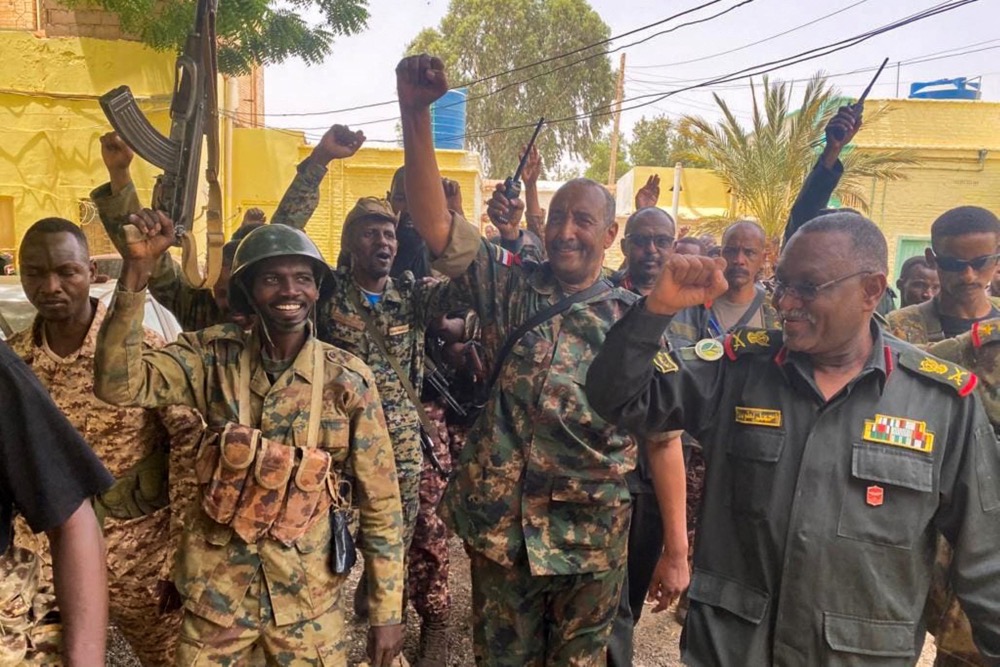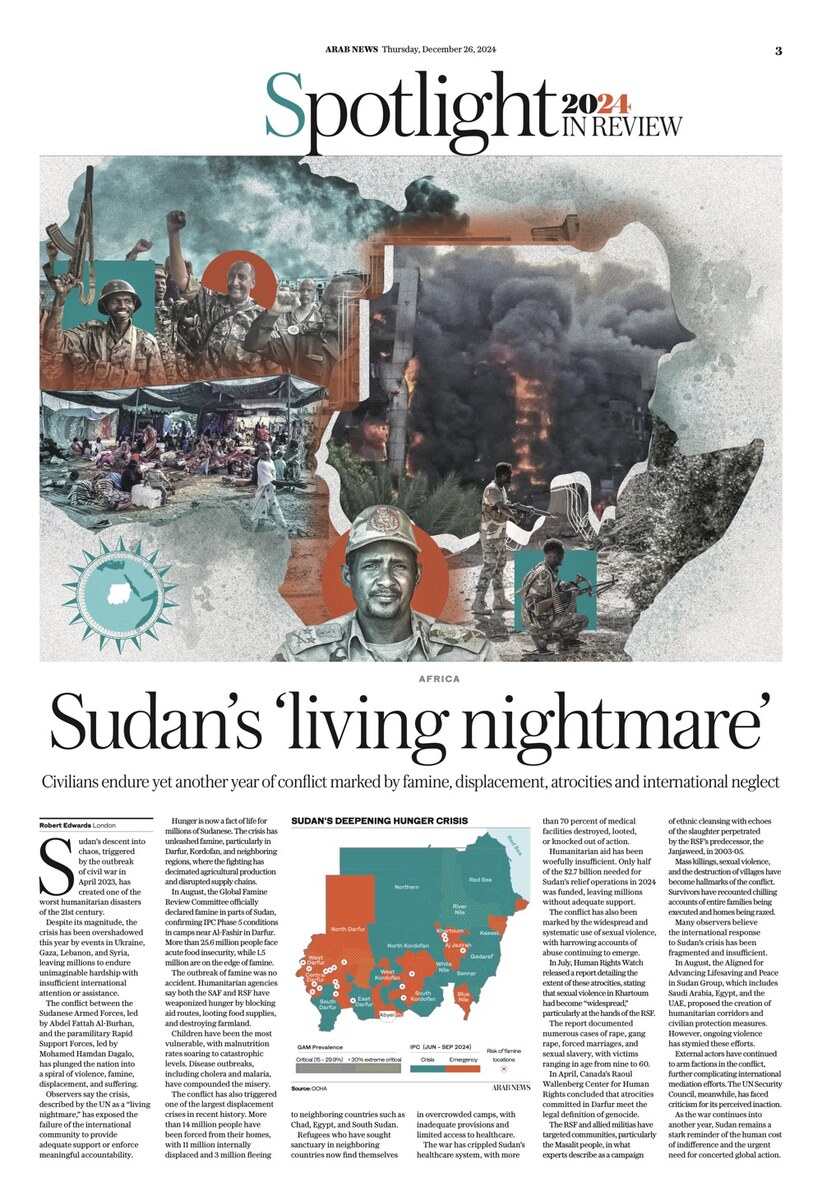NEW YORK CITY: The UN on Monday repeated its call for all those involved in conflicts in the region to “step back from the brink and to consider the unbearable human and economic cost of a potential regional conflict.”
It warned that the Middle East remains “highly volatile,” and called for the development and implementation of a clear political road map designed to resolve the conflicts that rage there.
During a meeting of the Security Council to discuss the latest escalations in the region, including the US strikes on targets in Yemen, Syria and Iraq, the under-secretary-general for political and peacebuilding affairs, Rosemarie DiCarlo, once again called for an immediate humanitarian ceasefire in Gaza and for the unconditional release of all Israeli hostages held by Hamas.
The UN has repeatedly warned of the danger that the Oct. 7 attacks by Hamas on Israel and the war that has followed in Gaza could spark an escalation into a wider regional conflict.
Since the Hamas attacks there have been near-daily incidents in several countries, including about 165 attacks on US targets in Syria and Iraq, prompting Washington to launch retaliatory strikes in both countries.
On Jan. 28, a drone attack killed three American personnel and injured 40 at a US military outpost in northeastern Jordan. These were the first combat fatalities among US forces related to the current regional crisis.
Washington attributed that attack to the Islamic Resistance in Iraq, and President Joe Biden vowed the US would “hold all those responsible to account at a time and in a manner of our choosing.”
A few days later, US Central Command carried out 85 retaliatory airstrikes in western Iraq and eastern Syria, targeting sites used by Iran’s Quds Force, a branch of the Islamic Revolutionary Guards Corps. Washington said the attacks targeted command-and-control operations, intelligence centers and weapons facilities, and stressed it was not seeking a wider conflict in the Middle East or elsewhere.
Iran, Iraq and Syria condemned the attacks, which they said caused the deaths of 16 people in Iraq, including civilians, and 23 people affiliated with militias in Syria. Iraqi authorities summoned the US charge d’affaires in Baghdad and disputed a US claim that Washington had provided them with advance warning of the strikes.
Though the Iraqi government has reiterated that it remains committed to protecting US and other coalition forces in Iraq, DiCarlo said some armed factions linked to the “Islamic Resistance in Iraq have pledged to continue their attacks against US and coalition forces in the region.”
She told the Security Council that the wave of violence since early October has encompassed a large swath of the Middle East. She highlighted in particular the daily exchanges of fire across the blue line that separates Israel and Lebanon between the Israeli army and the Iran-backed Lebanese group Hezbollah.
She also expressed concern about ongoing drone and missile attacks by the Houthis in Yemen and the threat they pose to international shipping in the Red Sea. She said they risk “exacerbating the conflict and further impacting international trade, as companies divert ships away from critical maritime routes.”
The US and UK have been launching strikes on Houthi positions in Yemen since Jan. 11. In the past three days alone, they hit more than 36 targets at 13 locations, including what were described as command-and-control sites.
Russia’s permanent representative to the UN, Vassily Nebenzia, accused Washington of deliberately stoking the conflict in an attempt to expand it to some of the biggest countries in the region, as he called on the international community to condemn the “senseless acts of Washington and its allies in the Middle East.”
He said the escalation of violence has already gone “far beyond the Occupied Palestinian Territories, crossing not only the border between Israel and Lebanon, but also to the Red Sea and Yemen.”
He added: “Unilateral acts of violence by Washington and their allies only worsen the chaos in the region, nullifying international efforts to reestablish peace in the Middle East and to find a just solution to the Palestinian question.
“It is clear that the presence (in Syria) of the international (anti-Daesh) coalition led by the US has been a threat to security and stability in the country and also an attempt to involve it in regional and international conflicts. Washington, enjoying impunity, continues to sow chaos and destruction in the middle east.”
He said there was no justification for the US airstrikes on Syria and that such US attempts “to flex muscles (are) mainly to try to implement the domestic political situation in America to salvage the image of the current American administration in the international arena in the light of the upcoming presidential elections.”
Robert Wood, the alternate US representative to the UN for special political affairs, called on council members, especially “those with direct channels to Iran,” to press the leaders of the regime in Tehran to rein in their militias.
He added that “they should also press the Syrian regime to stop giving a platform to destabilize the region,” and vowed that the US would continue “to defend our personnel and hold responsible all those who harm Americans. That certainly goes for Iran and its proxies.”
He added: “We will continue to exercise our right to self-defense at a time and a place of our choosing. And we will continue to hold Iran and its affiliates accountable for their destabilizing actions.”


































